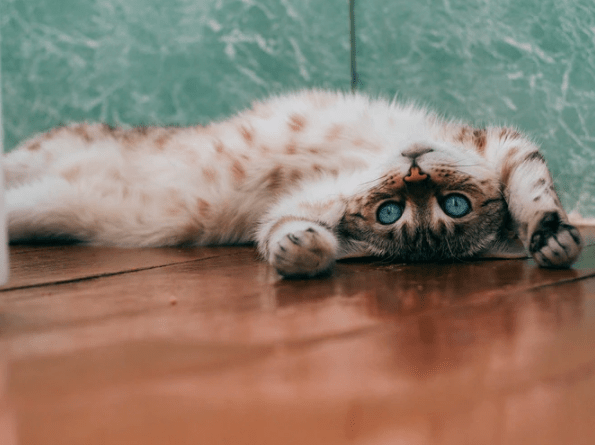Cats are a sassy gift from nature that warms up our hearts and homes with their presence. We love them no matter how moody they are. As opposed to dogs, cats are famous for their attitudes and carefree nature. This attitude of theirs makes them 100 times more irresistible.
As much as we love our pet cats, some aspects can actually be harmful to our health. About 30 percent of Americans have allergic reactions to cats and dogs. These allergies can vary from the regular flu to more severe asthma.
Some people overlook their allergies for the love that they have for their children. However, it is essential to get yourself tested to know accurately about symptoms and their possible cure. Cats have proteins in their various glands that may be allergic when in contact with a person. Most of these allergies can be cured using over-the-counter drugs, but sometimes more serious actions are required.
What Causes Cat Allergies?
So far, eight cat allergens have been recognized by World Health Organization. Among these eight, Fel d 1 is the most common allergen responsible for 96% of cat-related allergies. Fel d 1 is a protein secreted by the sebaceous glands of mammals. All cats produce this protein, and it is found on their skin and fur.
The other seven allergen – Fel d 2-8, are not as common as the first one; however, Fel d 4 is relatively common as it is produced in the saliva of cats. People allergic to cats tend to show symptoms if a cat licks them. These proteins react with human skin and cause rashes and blisters. Allergens spread by cat dander and fur are often inhaled, and then it responds with sensitive humans.
What Are the Symptoms?
It is not necessary that you have to own a pet to get an allergic reaction. Allergens can be on another person’s clothes or hands, and you can get a reaction after getting in physical contact with them. It may also be noted that symptoms may take time to appear, and you may not notice anything immediately.
Common symptoms of cat allergies are similar to food allergies. They can range from mild to severe, depending on the individual. The symptoms include:
- Swollen, watery eyes
- Nasal Congestion
- Itchy nose
- Ear infection
- Excessive sneezing
- Sore throat
- Coughing and wheezing
- Rashes and bumps on the face, chest
- Itchy skin
In case of severe attacks of asthma and painful breathing, emergency services should be notified immediately.
Medications for Cat Allergies
Like most allergies, cat allergies are often treated with common anti-allergy drugs. Doctors usually prescribe the following:
- Antihistamines: They are usually available over the counter, like Benadryl (diphenhydramine) or Claritin (loratadine).
- Nasal sprays: Flonase (fluticasone) or Nasonex (mometasone) are recommended by the doctors to reduce nasal congestion.
- Cromolyn sodium: It may reduce symptoms by preventing the release of chemicals in the immune system.
- Allergy shots that involve immunotherapy. They are usually followed by a series of shots prescribed by the doctor.
Home Remedies for Cat Allergies
Antihistamines are usually effective for most people, but they have many side effects and should not be taken regularly. It would be best to keep your distance from your cat as much as you can if you are allergic to it.
Many home remedies can provide relief to allergic reactions as well. Following is a list of such options for you to consider:
1. Homeopathic Remedies
Many people get better using only homeopathic, natural medicines. Although they take some time to take effect, they are considered safe as they don’t have any significant side effects.
Consumption of vitamin C and honey is a sure way to fight allergic reactions. You may also check your nearest food store for the following products:
- Probiotics.
- Butterbur.
- Bromelain.
- Spirulina.
- Stinging nettle.
- Quercetin.
2. Bathe Your Cats
Regular baths for your cats may reduce the dander and proteins to spread from the fur. Keep them clean at all times, and do not allow them to lick or bite you.
3. Buy an Air Purifier
As mentioned previously, allergens spread through the air and get inhaled by us. Air purifiers clean the air and get rid of the possible allergens. It will help you get a peaceful sleep at night without wheezing and coughing.
4. Train Your Cats To Be Distant
Do not allow your pet cat to roam freely everywhere. Limit its movements to certain parts of the house to spread its dander and proteins everywhere. If you have infants in the house, it is best to keep the cat away from them unless you are sure that they are not allergic.
5. Wash After Contact
If you cannot resist touching your beloved cat, then you should at least wash your hands immediately after the contact. This will reduce the symptoms as the allergens will get less time to spread.
6. Neem Cream for Rashes
Neem is famous for its herbal health benefits. It has soothing properties that work best against rashes and bumps caused by cat allergies. Avoid using any perfumes and deodorants if you are already facing such rashes. Get yourself a herbal neem cream for instant relief.
7. Use Nettle Tea
Caffeine is not a good choice when facing allergic reactions. It triggers the symptoms even more, like itching on the skin and swelling around the eyes. Instead, use nettle tea which makes a great alternative to regular tea. It tastes good and is also great against allergies.
Cat Allergies Should be Taken Seriously
We know that you love your pet cat and would not think of parting with them. But it is also important that you take care of your health. Depending on the intensity of allergic reactions you get, you should take the necessary precautions. Allergies are often treatable, but we should not take them lightly and wait for them to get seriously dangerous for us. A little care and precaution go a long way for you and your pet cat.

